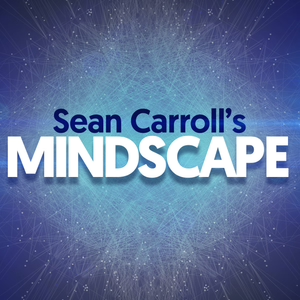
It from Qubit with Grant Salton
12/29/22 • 68 min
Kevin and Sebastian are joined by Grant Salton, a quantum researcher at AWS, who helps us understand a recent paper from Google and Caltech whose authors describe a simulation of a wormhole on Google's Sycamore quantum computer. The paper stirred some controversy and push back on the misunderstanding of the claims being made, and Grant walks us through a sub-domain of quantum information science called "it from qubit," which seeks to bridge elements of astrophysics with concepts from quantum information.
Mentioned in the episode:
The Nature paper from Google and Caltech describing the wormhole experiment and findings.
Some context from Caltech blog.
John Wheeler's paper: "Information, Physics, Quantum: The Search for Links" which coined "it from bit."
A BBC article describing the "quantum hair" solution to Hawking's black hole information paradox.
The Edge of All We Know, a terrific documentary that traces the efforts to solve the information paradox in parallel with the effort to capture an image of a black hole.
Kevin and Sebastian are joined by Grant Salton, a quantum researcher at AWS, who helps us understand a recent paper from Google and Caltech whose authors describe a simulation of a wormhole on Google's Sycamore quantum computer. The paper stirred some controversy and push back on the misunderstanding of the claims being made, and Grant walks us through a sub-domain of quantum information science called "it from qubit," which seeks to bridge elements of astrophysics with concepts from quantum information.
Mentioned in the episode:
The Nature paper from Google and Caltech describing the wormhole experiment and findings.
Some context from Caltech blog.
John Wheeler's paper: "Information, Physics, Quantum: The Search for Links" which coined "it from bit."
A BBC article describing the "quantum hair" solution to Hawking's black hole information paradox.
The Edge of All We Know, a terrific documentary that traces the efforts to solve the information paradox in parallel with the effort to capture an image of a black hole.
Previous Episode

Better Qubits Through Material Science with Nathalie DeLeon
Key Takeaways:
[3:38] Nathalie shares how she found her way into the field of quantum technology.
[6:25] Nathalie talks about the key moment in the landscape towards being a believer in Quantum Technology.
[8:29] Nathalie talks about certain things that made her change her mind.
[12:20] Nathalie speaks about her particular entry into the science field.
[18:09] How far up the stack does Nathalie’s interest lie, and how does that inform what she has been doing down at the materials?
[22:54] Nathalie shares the story about NSF.
[25:48] What is wrong with Niobium?
[27:12] Nathalie explains the difficulty of surface physics and surface chemistry in this domain.
[32:30] Is there a way to describe conceptually how a vacancy in a diamond can be used as a two-level system or for a cubit, or as a sensing device?
[37:03] Why is it called a color center?
[37:59] Nathalie talks about the genesis of her paper which includes material science foundations for the quantum information process.
[42:35] Can Nathalie make any speculations based on what she learned from the review paper?
[46:54] Is it true that manipulating diamonds is really slow?
[48:28] Sebastian talks about the way they met Nathalie.
[49:29] Are there things that either educators or industry participants in this stage of quantum computing and quantum information technologies can do to help make this area work better than the other fields have in the past?
[55:58] Sebastian and Kevin share the highlights of an amazing conversation with Nathalie DeLeon.
Mentioned in this episode:
Visit The New Quantum Era Podcast
Co-Design Center for Quantum Advantage
Tweetables and Quotes:
“If you could do a quantum version of erasure conversion, you can actually get extremely high thresholds.“ — Nathalie DeLeon
“The fact that, in some sense, fault tolerance is a phase, a transition is a quantum phase transition, right? You have a fundamentally different system before and after you turn on your error correction. .“ — Nathalie DeLeon
Next Episode

An optimistic view of quantum computing's future with Joe Fitzsimons part 1 of 2
Kevin and Sebastian are joined by Joe Fitzsimons, founder and CEO of Horizon Quantum Computing, a startup based in Singapore. Joe recently posted a thread on Twitter responding to some of the reactions to a recent Time cover story about quantum computing. We were really struck by his level-headed optimism and so we wanted to dig in deeper. This is part one of our conversation with Joe, where he explains the reasoning behind his optimism for the future of the technology.
Mentioned in the episode
Global Risk Institute 2022 Quantum Threat Timeline Report
The Center for Quantum Technologies in Singapore
Wikipedia page on 2 nanometer process for microprocessor fabrication
If you like this episode you’ll love
Episode Comments
Generate a badge
Get a badge for your website that links back to this episode
<a href="https://goodpods.com/podcasts/the-new-quantum-era-246959/it-from-qubit-with-grant-salton-28068206"> <img src="https://storage.googleapis.com/goodpods-images-bucket/badges/generic-badge-1.svg" alt="listen to it from qubit with grant salton on goodpods" style="width: 225px" /> </a>
Copy




